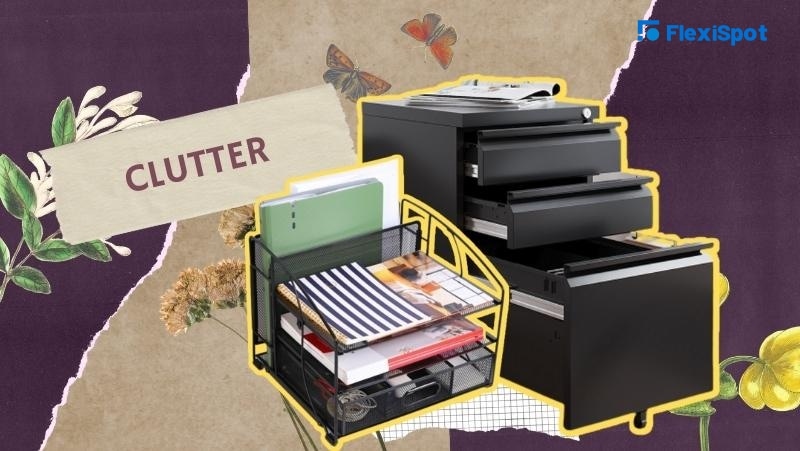It’s a given that in any workplace, there would be distractions. You can’t have a perfectly efficient workplace where employees just work all the time from 9 to 5. There would be moments when they have to take a break or even while they’re working that they get distracted. It’s completely normal because we don’t live in a vacuum and distractions come and go at any time, regardless if we are working on a deadline or not.
The distractions also took a new form when more companies delved into remote work at the height of the pandemic last year. Technology became a bigger enemy with no supervisors around the house and employees having easier access to gadgets.
Aside from technology, working from home meant taking care of household responsibilities as well. If living with children or having other people in the household, there is an extra weight to take part in the managing of the home while also fulfilling work duties.
It helps of course if we could identify these distractions so that when they arise, we would know better how to deal with them. Below are some of the distractions you must be wary about:
1. Smartphone
There are many advancements that happened because of the smartphone. In communications, people could now reach one another via a messaging app, email, text message, or through a call. It’s also easy to search anything on the Internet and scroll through social media. But because of these accessible and advanced features, people are now glued to their phones more than ever. Their attention spans have significantly shortened and they easily become distracted once they hear notifications popping up. When people began working more from home, it became harder for companies to monitor smartphone use that possibly led to lower levels of efficiency.
2. Office Gossip
Most of us have this fear of missing out. We all want to know the tea behind Jessica’s new boyfriend, the new boss, Mark’s latest divorce, or a client’s snarky attitude—because it’s more exciting than the pile of paperwork before us. Once we sit down and open the chatbox, we get so invested in the conversation, one reply after another and before we know it, two hours have already passed and we have yet to finish our task for the day. Even though we’ve shifted to the digital platform, gossip is still very much alive in the workplace.
3. Housemates
If you think you won’t have to physically work with another person anymore, think again. Chances are your housemates may have also been sent to work at home by their offices. Your kids would now be studying at home. Your dogs may bother you anytime for treats. In some ways, this setup may even be more difficult with different schedules to complement one another so that no video calls would clash or no crunch time would be interrupted. With more people at the house, you have to be more mindful of your work tasks and household chores.
4. Meetings
Because supervisors can’t monitor what their employees do within work hours, a solution that management came up with is to have as many meetings as possible. To get co-workers acquainted and make friends, there are also many meetings dedicated to socials. Sad to say that although the intention is good, this system is not always the most productive. There are many meetings that just take time away from the employees’ work. Instead of finishing within work hours, some would have to extend because of a meeting that happened in the middle of the day.
5. Visitors
Sometimes, there are visitors who come unannounced. Maybe it’s your third-grade best friend who was visiting town or your senior mom who drove half an hour to your place just to ask for tech assistance. You can’t possibly fully control the coming and going of visitors and when they arrive, you are forced to entertain them or make them feel welcome even though you’re busy finishing a project due in two hours. Working from home is more flexible than most people just assume you’re free at any time of the day to keep them company.
6. Household Chores / Errands
There are more people in the house and although you will get to delegate among more individuals, the responsibility of household chores can get daunting especially if you’re finishing a rush assignment at work. These chores and outdoor errands may, yes, make you more responsible but they do also take a chunk of time which may distract you from fulfilling the duties of your day job.
7. Clutter
Many people think that getting rid of clutter is purely for aesthetic purposes. While it’s true that organization will make a place more aesthetically pleasing, cleaning up also means you may have better focus and distractions won’t come easy. Sometimes when we go through our clutter to look for something we need at the moment, we end up finding items that will grab our interest and make us lose focus. Aside from that, cleaning up piles of clutter can become overwhelming and may take time to finish. Clutter also fills up many free spaces in your head just by looking at the amount you’ve gathered for the past years.
To not reach an overwhelming point, install storage solutions that will make your life easy breezy. Use a FlexiSpot Mesh Desk organizer and tuck it in the corner of your table. The material is mesh so you would be able to see what it contains without having to take out every single thing just for you to find what you’re looking for. FlexiSpot also has mobile file cabinets that you can move around the room because of their smooth-rolling caster wheels. You may keep your mobile file cabinet close so it won’t be a hassle if you want its stored items to be within reach. There are also standing desks with pull-out cabinets such as the Comhar All-in-One Standing Desk or the Esben Standing Desk UD4.
8. Personal Problems
One distraction that is hard to deal with is when you’re going through a personal crisis and you still have to show up for work. Even though it’s just through a screen, it’s equally hard to focus when your mental health is not at its best.
Managing Distractions
While it may be impossible to get rid of all your distractions completely, it doesn’t mean you can’t do anything to manage them. The first step is identifying these distractions and becoming more aware of them as they come throughout the day. Note them down and your behavior towards them when they happen. In this way, you’ll be able to assess what to avoid doing and figure out ways on how to stay focused on the task you are doing at that particular moment.
After awareness, communication also helps. If it is already going out of hand, share your living situation with your superior and how it’s affecting your work. Ask to be excused from meetings that you think you won’t be able to contribute anything to and vice versa. Tell your housemates when not to disturb you and what work dynamically you prefer so that you could find a compromise that sits well for all of you.
Another way is to take a break and recharge for a few weeks. Once you’re back, you’ll have more energy to hit refresh and stay committed to a more disciplined work ethic.







